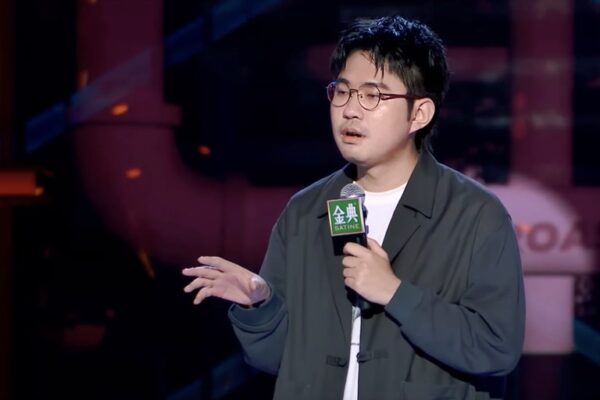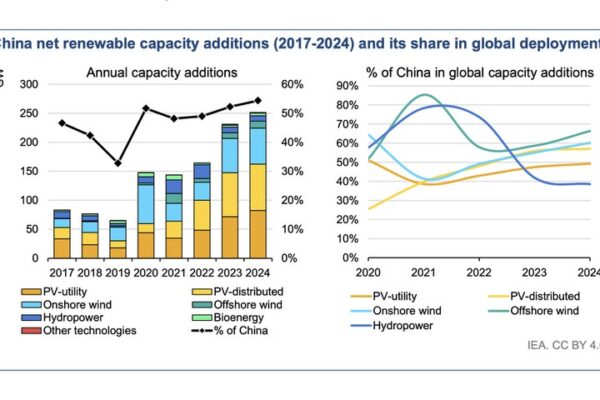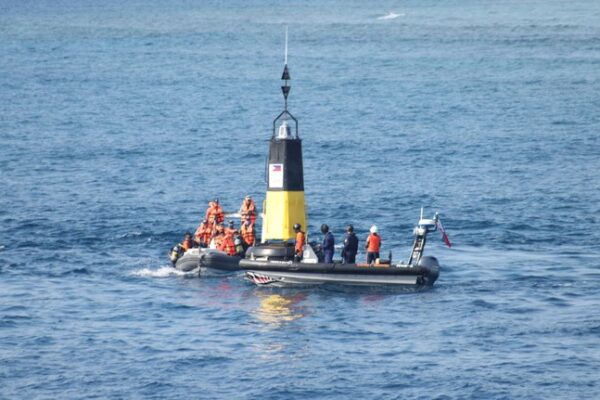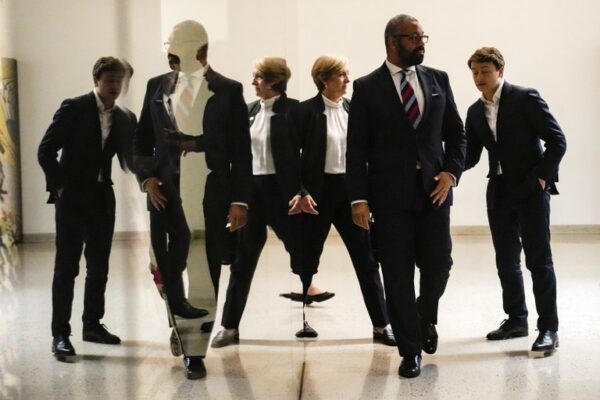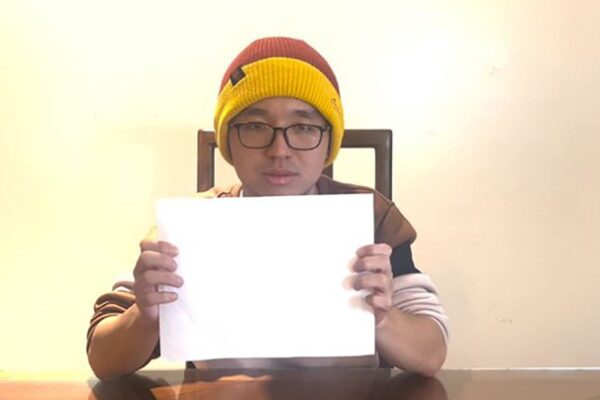
The 1989 Tiananmen massacre – as seen by a new generation of watchful eyes
On the anniversary of the 1989 Tiananmen Square massacre last weekend, a group of protesters gathered in London’s Trafalgar Square to pay their respects to the victims of the military crackdown by the Chinese army on peaceful pro-democracy protests. These protesters were of a similar age to the students they commemorated. After decades of political brainwashing under the Chinese Communist Party, which bans any public discussion of the 1989 events, many observers had started to believe that China’s young people had lost touch with the kind of political fervor that gave rise to the student movements of the 1980s. Then, the “white paper” protests came, spreading across China in late 2022 in the wake of a fatal fire in Urumqi and after three years of COVID-19 lockdowns, quarantine camps and compulsory daily testing. The result was to light up the pro-democracy movement in the diaspora, with young people once more taking to the streets of cities around the world to demand better for China, and to remember those who had gone before them. Wang Han, 26, currently studying at the University of Southern California Wang told us in a recent interview that the Tiananmen massacre occupies a similar place in his mind to the three years of stringent lockdowns and travel bans of the zero-COVID policy under President Xi Jinping. Wang, who described himself as deeply involved in the “white paper” movement, said the two are similar because they were the products of the same authoritarian government. “It’s what I’ve been saying to so many people,” he said. “I think everyone needs to stand together in the face of totalitarian tyranny.” “Everyone needs to stand together in the face of totalitarian tyranny,” says Wang Han. Credit: Screenshot from Wang Han video Wang’s politics have evolved since Xi took power in 2012, and amended the constitution in 2018 to allow himself to rule indefinitely. Before Xi consolidated power in his own hands, Wang had allowed himself to hope that China might one day relinquish its authoritarian government peacefully, the way Taiwan did in the 1990s, to become a fully functioning democracy. “Under Jiang Zemin and Hu Jintao, I didn’t support the Chinese Communist Party, but at that time I naively believed that this country would get better, a bit like Taiwan, with everyone moving forward step by step until finally, (Taiwan’s) Democratic Progressive Party was in power,” he said. “But when Xi Jinping amended the constitution in 2018, that really shocked me,” Wang said. “Then there was the pandemic emerging in Wuhan, and social movements started to inspire me even more.” Since then, Wang has dropped the belief that China will follow Taiwan’s path to democratization. “The Communist Party has done a more complete job of destroying grassroots social organizations in China, and it is more totalitarian” than the authoritarian Kuomintang government that once ruled Taiwan, he said. “I don’t think it is going to evolve away from tyranny through normal demands for reform,” Wang said. “That will only happen through a more determined kind of resistance.” Looking back, Wang sees scant signs of any political evolution at all in the past 73 years of Communist Party rule in China. “It doesn’t matter how different the ideas of Xi Jinping and Deng Xiaoping are,” he said. “The Communist Party and Marxism are totalitarian systems, and the totalitarian consciousness is deeply ingrained in them, and in their ideas.” Xiao Yajie, 23, mainland Chinese who grew up in Hong Kong Xiao, who is working in Los Angeles, grew up hearing about the Tiananmen massacre in Hong Kong, which still had the freedom to hold annual candlelight gatherings every June 4, in Victoria Park. But smaller events were also taking place in the city’s schools, away from the eye of the international media. “Hong Kong’s political direction was still very liberal, and every school would hold June 4 commemorative activities,” she said. “During those years that I was studying in Hong Kong, our school would have spontaneous activities every year, and everyone would go to the auditorium to mourn the students.” “We would have candlelight evenings all through my elementary and high school years,” Xiao said. Xiao Yajie takes part in a rally for the Los Angeles “white paper” movement. Credit: Provided by Xiao Yajie Back then, Xiao didn’t give it much thought — until 2016, when her parents ran into some tourists from mainland China at a vigil in Victoria Park who denied the massacre had ever happened. “My parents told me about this, and I realized how much people in mainland China had been deceived,” she said. “This left a deep impression on me.” When the 2019 protest movement kicked off in Hong Kong, in response to plans to allow extradition of alleged criminal suspects to mainland China, Xiao went back to take part, getting tear gassed by the Hong Kong police, and watching supporters of the Chinese Communist Party throw things at protesters on the street. Xiao continues to take part in local activism, including during the “white paper” movement, which she found inspiring. “This is a democratic movement that is better than the 1989 movement because this group of brave people stood up under huge political pressure [not to],” she said. “Although some of the people who launched the white paper movement may not even have known about June 4, it carried forward what the university students left undone [in 1989],” Xiao said. “That yearning for freedom and democracy from the past — it’s actually in our bones.” Ji Xin, a U.S.-based student from Shanghai in his early 20s Ji was among the few young people to find out what happened on the night of June 3-4 when the People’s Liberation Army entered Beijing in columns of tanks, firing machine guns at unarmed civilians on the streets and putting a bloody end to weeks of student-led protests on Tiananmen Square. He first heard adults talking about it when he was just eight years old. “I was playing…

